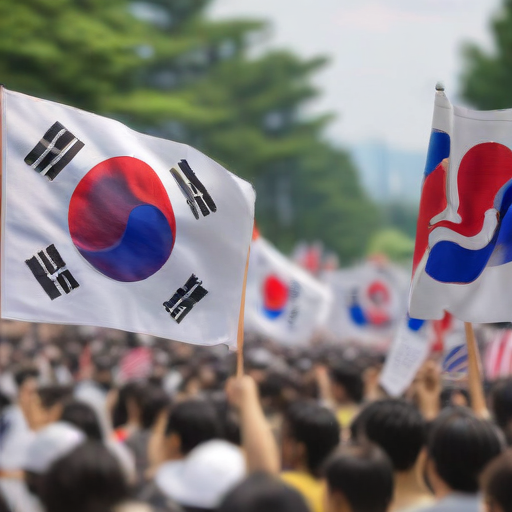A tumultuous night in South Korea unfolded as President Yoon Suk Yeol abruptly declared martial law, which sent shockwaves through the nation. The announcement, made late Tuesday night, was framed as a necessary response to threats from “anti-state” forces sympathetic to North Korea. The sudden assertion of authority startled many, including 19-year-old Hwang, who found himself amidst an urgent protest at the National Assembly by Wednesday afternoon. “It’s important for me to be here to show that we are against what Yoon tried to do,” he expressed, displaying the strong sentiments shared by hundreds who converged at the assembly.
The president’s declaration prompted swift and vigorous reactions. Opposition leader Lee Jae-myung quickly took to social media, urging citizens to gather in protest and calling on lawmakers to thwart the president’s order. This call to action was met with overwhelming support as thousands filled the streets despite a heavy police presence. The scene was marked by rising tensions, with citizens shouting “no to martial law” while blocking military vehicles attempting to access the assembly. Amid the chaos, reports indicated that military forces had been deployed, intensifying the atmosphere of fear and uncertainty.
As the night progressed, many South Koreans voiced their dread over a potential return to authoritarian rule, recalling the nation’s painful history with military dictatorship. Notable moments included Democratic Party spokesperson Ahn Gwi-ryeong confronting soldiers at gunpoint, an episode that highlights the palpable fear and determination of those trying to protect democracy. Many lawmakers grappled with security forces to access the assembly, seeing their struggle as a critical defense of democracy.
In a remarkable turn of events, opposition lawmakers successfully convened at the National Assembly less than two hours after Yoon’s declaration and voted unanimously to revoke the martial law order. The swift collective action demonstrated unity and resilience within the democratic framework, and by 01:00 local time, the president was compelled to retract his alarming announcement.
This incident serves as a stark reminder of the fragility of democratic institutions, making it clear that citizens remain vigilant and ready to defend their rights. As South Korea reflects on this episode, it highlights the strength of its democracy and the commitment of its citizens to preserve it, suggesting a positive outlook for the resilience of democratic values in the face of challenges.
